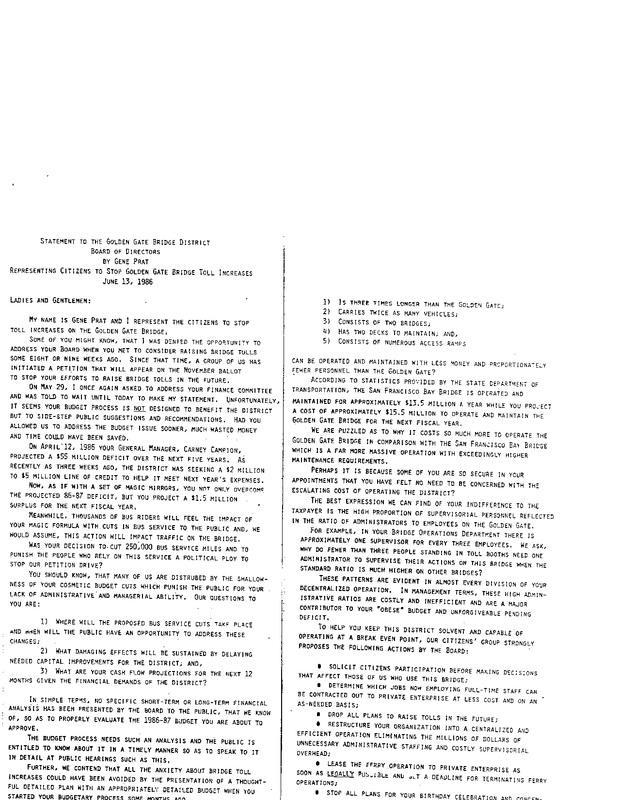Twitter targets trolls but winds up silencing conservatives
When Twitter sanctioned popular right-wing provocateur Milo Yiannopoulos last month for bad behavior, conservatives were concerned. Two weeks ago, when the social media platform picked a bunch of leftist groups to write its new harassment policies, they grew worried.
Now, in the wake of Twitter’s recent decision to ban conservative blogger Robert Stacy McCain, is it time for full-fledged panic?
There’s no telling what Twitter’s endgame is, but it’s unlikely to be good for users who don’t want the company to enforce overly broad harassment and hate-speech policies at the expense of open dialogue.
McCain, the latest high-profile pundit to run afoul of Twitter’s vague prohibitions on abusive behavior, is a controversial figure. Many would find his passionate denunciations of liberals — feminists, in particular — offensive, even vile (I know I do). But there’s a considerable difference between using Twitter to harshly criticize opponents and using it to harass them or incite others to violence. I’ve yet to see a compelling case that McCain crossed that line.
Why did he get the boot, then? Twitter recently formed the Orwellian-named “Trust and Safety Council” to propose changes to the company’s use policies. The goal, according to a press release, was to find a middle ground between permitting broad free speech and restricting actual abuse.
But practically none of the 40 people chosen to be part of the council are all that concerned about free speech. In fact, most of them work for anti-harassment groups and seem likely to recommend further limitations on online expression.
One such council member is Anita Sarkeesian, a feminist blogger and opponent of the GamerGate movement.
People associated with GamerGate believe feminists are trying to take the sex and violence out of video games in the name of liberal political correctness; Sarkeesian contends (not incorrectly) that women who speak up about sexism are subjected to misogynistic harassment on forums and social media sites.
Sarkeesian is exactly the kind of person McCain has spent his life bashing: The fact that he was banned from Twitter mere days after the company chose her for the council doesn’t exactly inspire confidence that such decisions are being made fairly.
To be clear, even if Twitter’s administrators are engaging in ideologically motivated suppression of speech they dislike, that’s legal. The First Amendment prohibits the government from censoring citizens — it doesn’t prevent private companies from censoring would-be customers.
Indeed, Twitter has the ironclad right to enforce its rules as vindictively as it wants. Conservatives and libertarians ought to support that right on principle, even if they are its losers in this specific case.
What should conservatives do? What they’re already doing: speak up, and loudly. Shortly after McCain was shown the door, people who want the platform to be more open to free expression organized a #FreeStacy hashtag.
Twitter, to its shame, soon suppressed the hashtag.
In response, some have vowed to boycott Twitter entirely. Actor Adam Baldwin, a popular conservative voice on social media, said the site is “dead to me,” and deleted his entire history save for a single link to an article demanding McCain be returned to good standing.
Twitter’s ill treatment of right-leaning figures deserves pushback, and these kinds of stunts are as good a tactic as any.
As Popehat blogger and lawyer Ken White argued, “I classify Twitter’s action as bad customer service and as private speech I don’t like because of my conservative views.” When a company has bad customer service, the best solution is often to defect.
Personally, I like Twitter, and would hate to start over recruiting followers on whatever platform the young folks are into these days — Facebook? Instagram? Snapchat? Is that a thing? So I’ll be sticking with the little blue bird for the foreseeable future.
In the meantime, I hope the company does a better job expelling users for the expression of actual abuse rather than incorrect beliefs and attitudes. It could allay some concerns by adding a dedicated free-speech enthusiast — White would be a great choice — to the roster of its Trust and Safety Council.
Nobody, right or left, wants to get banned for saying the wrong thing.
Robby Soave is a staff editor at Reason and columnist for The Daily Beast.
